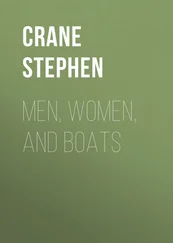A truth here is that angels exist in thought. In great numbers as the case may be, and in small compass we understand. But as angels are summoned to be guardians or messengers, vascular go-betweens or light for its own sake, they seem granted more power than potential. Still, do not angels have rights or anyway abilities to be unprecedentedly other than themselves, or less, or more, since they are lodged in thought? What if they edge in, infiltrate, graft, find real being already present along the curve of the human said to be their arc of new evolution — though into us or into the angels they can be?
Are these merely our angels? They angle into and out of our speech like some advanced listening advice we recognize because we remember from somewhere. And what is this community — this large We we ourselves voice? It will be a community for one thing and capable of accommodating even angels real enough to grow by human means.
God the interference! Can’t hear the interference like we used to, what we once heard — the god relieving himself, blowing tubes, like our weather ship beneath her Coast Guard white paint.
Himself, did one hear? The god himself! Blowing rather his or her tubes; his or her nose; or noise — our noise. The news. But it was all news. Wind that we mouth into sounds of caves. Sounds on skin. We knew it, sound of bones living below the surface, visible like ankle and jaw, and then all that’s between connecting the neck bones to the thigh bones which masculine or feminine are the same old femora beneath the skin. May we not together likewise find, say, one question to comprehend two or more answers? Is there not breath enough for all of us to take one here?
Now if male is to female, then moral be to femoral, if we hadn’t instantly had our heads slung beyond these things to where, listening at the very thigh of the divine (flesh no obstacle) we pick up — the less hard we listen, the better we pick up — vibrations of a better way of doing things — costed, cost-risked — we pick up what else but the will of a slow worm in there. In the divine thigh (make it flesh).
We pick up only however the tapeworm’s track, but echo track of the headway it’s making elsewhere quite a ways from here. Vibes coming from up in the belly area actually where the worm is hooked in, yea up beyond the vaulted groin’s divide.
And this tapeworm in its steady state takes in along a multiplicity of small-scale units that are its nervous system’s segments a homogenized menu of the godly diet — read sacred — divine —read diva suddenly which is opera for goddess. But wait: what diet is this? We have to know. Oh it is food digested by her the tapeworm’s host then processed by the worm her guest plus helpings of a new para-placenta that lines the linings of this diva’s — read songbird’s —read opera singer’s —gut: so as the worm makes its way, and its way makes the worm, the diva gets hers, her way, which eats up her surplus and empowers her to shed really a lot of weight, sundry reported amounts upwards of a hundred foolish pounds. The better then, with her amazing range, to go on as the sinewy dramatic soprano that she is, as mother, lover, barmaid, princess, or herself, to music — if you call that music real noise.
The tapeworm thus did eat at length and having eat ate on unmindful of the noise of waters, running waters, running waters far away and near, of molecules hitting, hoping, sticking, and combining, for what could stick did, and the willful worm at work upon its environmental meal never minds the noise overhead that’s gaps of power burnt, burnt into music, burnt to expel the song of this practicing singer content now to turn her windy will to work, having a month ago introduced this very special tapeworm into her system, her heaviness, her hunger, her desire, in the flesh of a predatory fish — a pike from the Mille Lacs region of Minnesota — a M’Lacs pike that had turned the wrong way at the wrong time, been caught, identified as a tapeworm host, and flown live one thousand miles direct to the supposedly overweight diva’s favorite Japanese restaurant by an Ojibway Indian medicine man with a diamond squint — a tapeworm (a fish tapeworm) prescribed by her fond but at this event secretly squeamish New York physician who knew he had to do something or give way to someone who could.
He thought he read her like a book. But what one?
"Confused," she once signed a little note hand-delivered to him one morning begging his advice: it meant "in love," and two months later she would confide in him that it had been just sex. When he said more than once to her, "I’m confused," it meant clearly "moral" and "angry," but also (undeclared as usual) "in love" (but with her, his patient, his dear friend), though she might refuse to read his moods. Is he important among these elementary elements? We know enough to ask. He knew he was important to her but not like her audiences in the darkened house, who mattered with a depth so great it verged on the invisible, and so mattered almost more than family (if she had had family in this foreign America — she had a father far away).
Sensational opera sheds little light on private life, but how weigh such light shed from her suns and windy heavens where she must have forgotten him for hours, her doctor, yet knew, like the most precious childhood awkwardness within this very lovely lovable body, that this loving friend was there. Nor did we mean to shed light upon the private life of grand opera. What happened, in good faith, was that we double-checked the god and took it from there; followed where the sounds led, through a divine thigh up to a tapeworm that later proved to be dual-sexed. In turn, this worm’s will to live by growing unknowingly obeyed the will of its host (nee hostess) to reduce. Yet she, too, gave way before a greater will or emptiness. Which some fresh power in us guesses isn’t the wind on the other side of the obstacle but an obstacle beyond the wind.
Inspired. Coming out of left field. Turning an eye that way as if we took place not just in the receivers of our waves of relations but as those receivers no less. Is that, then, true reincarnation? Grand, to be sure; maybe abominable, this vague incarnation intimated to us. Was it angel, animal, mineral, chemical, chemo-therapeutical? We will be asking again.
To go on, an obstacle. And inspired by trying to recover what we have chosen to forget. These words belong to a speaker for that century and the preceding, who maybe in what he refrained from saying knew the light that is thrown by forgetting itself. But how? we ask. And find one answer in ourselves: Light passion-bent past roadblocks it has itself devised: yes, in the fine void of our possible intelligence that announces owl-like one weighty day that we didn’t know what light was but we’d been promised a power and thought it might be to find that on good days we were light or got to be.
If it needs to be worked through, raise it in the workshop. Our void’s first lady, Grace Kimball, with reportedly Indian cheekbones, sees ahead to a better way of doing things, of doing us. Grace Kimball we already remember found history in women: in the women contained by men, and in men retaining secret fluid of women you don’t own up to, and this in all the people who passed through her helping hands making her sometimes in her dreams (for she and this history did each other full time) invisible as the raped call for help, and sometimes in her dreams non-important as a monstrously yawning future unplanned (and by others not oneself). Grace saw ahead into a future that looked back at her through the same eye with which she saw it, into a room without furniture. Her Body Room she would call it, as if other rooms in her apartment were not also body room, yet if in this day and age we become acquainted with long spaces by means of brief capsules, by, in turn, as we understood it equaling long spaces to short times and at other times simply, babe, letting (as in let it happen — as in life) letting (we already forget) letting a broom stick be equal to a base ball because if we can’t build our scale life in the lab mustn’t we look past what we already think we know and just say that this blindingly multiple curve equals those several lifelong brevities? Why did we even ask?
Читать дальше












